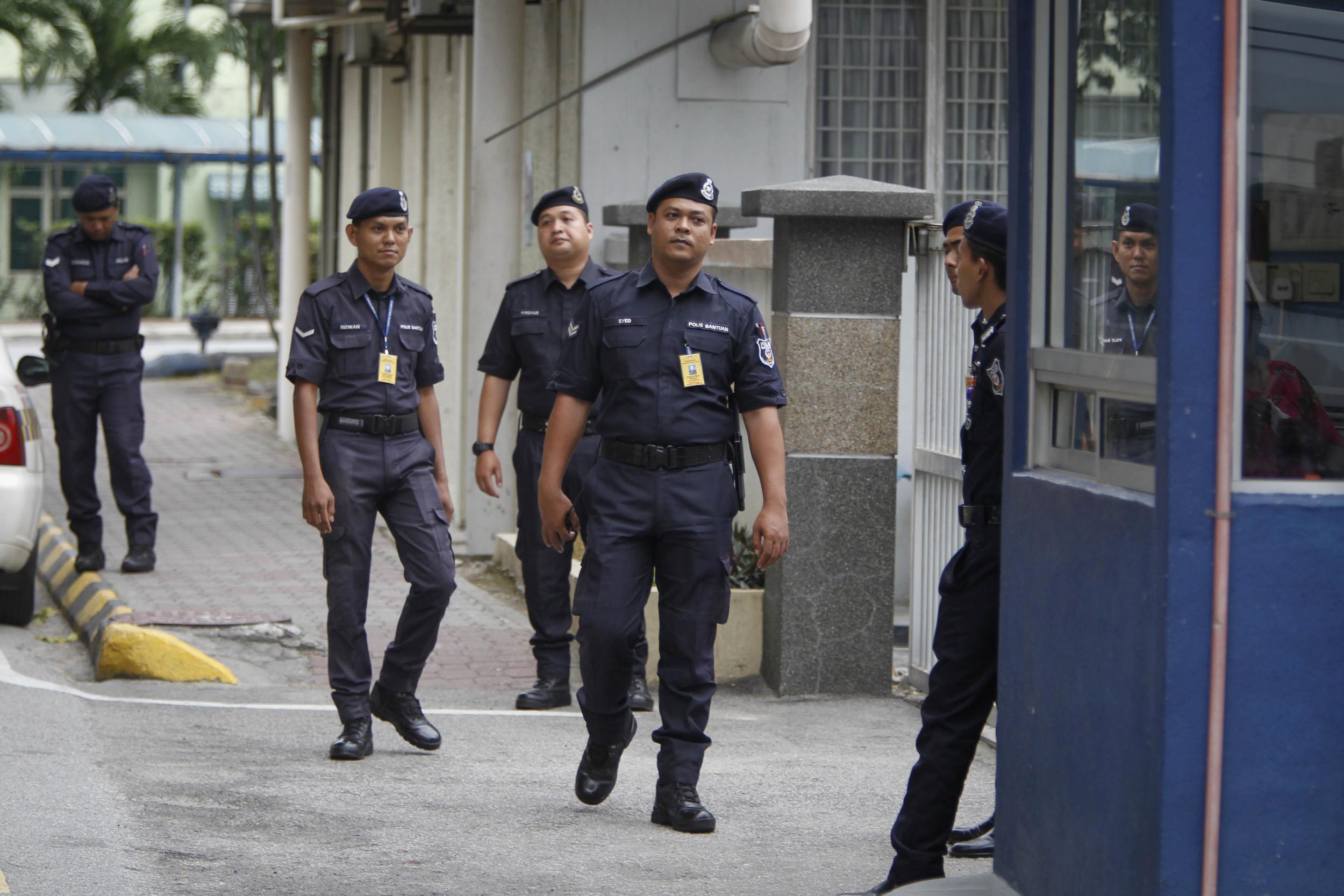Kim Jong Nam murder: Malaysian police issue arrest warrant for airline employee over death of North Korean exile
Investigators suspect North Korean intelligence agents of masterminding assassination

Your support helps us to tell the story
From reproductive rights to climate change to Big Tech, The Independent is on the ground when the story is developing. Whether it's investigating the financials of Elon Musk's pro-Trump PAC or producing our latest documentary, 'The A Word', which shines a light on the American women fighting for reproductive rights, we know how important it is to parse out the facts from the messaging.
At such a critical moment in US history, we need reporters on the ground. Your donation allows us to keep sending journalists to speak to both sides of the story.
The Independent is trusted by Americans across the entire political spectrum. And unlike many other quality news outlets, we choose not to lock Americans out of our reporting and analysis with paywalls. We believe quality journalism should be available to everyone, paid for by those who can afford it.
Your support makes all the difference.An an airline employee accused of colluding in the assassination of Kim Jong-nam is being hunted by detectives investigating his death.
Kim Uk-il, 37, works for North Korea’s national carrier Air Koryo and arrived in Malaysia around a fortnight before the assassination.
Malaysian police issued an arrest warrant for the new suspect on Friday morning as border security checks were stepped up to prevent anyone fleeing to North Korea.
Two women have so far been charged with murdering Kim, who died just minutes after the toxic VX nerve agent was wiped on his face at Kuala Lumpur International Airport.
The two suspects, of Indonesian and Vietnamese nationality, were caught on CCTV appearing to attack their victim on 13 February.
As the brother-in-law of Kim Jong-un, he had been living in exile for several years and had begged the North Korean leader to spare his life after a previous assassination attempt.
Police are searching for others involved in the operation, including whoever supplied them with the VX, which is listed by the United Nations as a weapon of mass destruction.
American and South Korean intelligence officials believe the assassination was masterminded by North Korean spies and eight suspects from the secretive state have been identified by police.
Only one has been apprehended, a man named Ri Jong Chol, who was released on Friday due to insufficient evidence and set to be deported after a week in custody.
Khalid Abu Bakar, a police inspector, told Reuters that at least two North Korean suspects were believed to be still in Malaysia.
Officials previously said that they want to question 44-year-old Hyong Kwang Song, a secretary at the North Korean embassy in Kuala Lumpur; Kim Uk-il and an individual named Ri Ji U.
Mr Khalid said Hyong has yet to contact the police despite a request sent to the embassy, and that the Air Koryo employee “is missing too”.
The other four suspects are believed to have left the country on the day of the murder, and made their way back to North Korea by air, travelling via Indonesia, Dubai and Russia.
Malaysian police have requested help from Interpol to apprehend them and cancelled visa-free entry for North Koreans from 6 March as relations worsen between the two previously friendly countries.
North Korea has voiced outrage at the Malaysian investigation, and does not accept that the dead man is Kim Jong-nam.
The Malaysian foreign ministry condemned the use of VX in the murder, saying it does not produce, import or use the weapon and is in contact with the Organisation for the Prohibition of Chemical Weapons.
North Korea, the US and Syria are among the countries believed to own the nerve agent, which is tightly controlled by international treaties.
“The Ministry strongly condemns the use of such a chemical weapon by anyone, anywhere and under any circumstances,” the Malaysian foreign ministry said. “Its use at a public place could have endangered the general public.”
Join our commenting forum
Join thought-provoking conversations, follow other Independent readers and see their replies
Comments